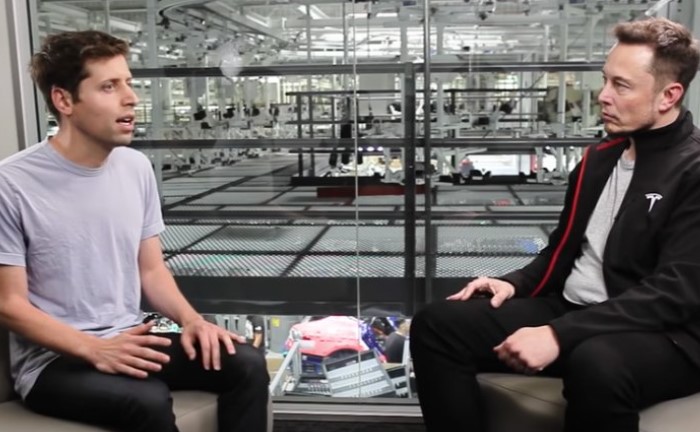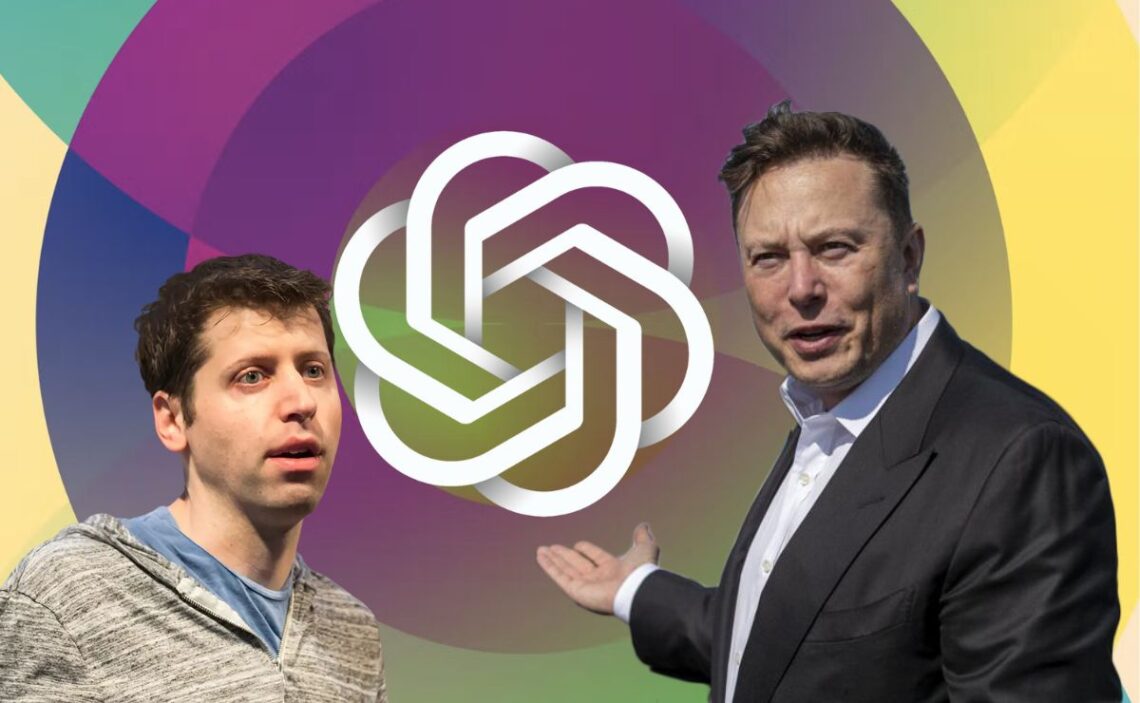The recent resignation of Sam Altman, who served as CEO of OpenAI, has sent shockwaves through the technology industry. This prominent figure’s sudden departure from leadership has raised concerns about the future of the company and its innovative AI research projects. Altman was considered an influential figure at OpenAI. He resigned to join X (formerly Twitter), owned by Elon Musk. The move has raised concerns and speculation about the direction artificial intelligence research is taking.
Elon Musk, co-founder of OpenAI and known for his critical stance on AI technology, took to social media to express his dismay at Altman’s departure. The CEO of X and Tesla left the company in 2018, citing concerns about the company’s focus on profits rather than countering Google’s advances in AI. These recent developments have spotlighted the risks associated with the unchecked expansion of artificial intelligence.
OpenAI was created as an open source (which is why I named it “Open” AI), non-profit company to serve as a counterweight to Google, but now it has become a closed source, maximum-profit company effectively controlled by Microsoft.
Not what I intended at all.
— Elon Musk (@elonmusk) February 17, 2023
The news of Altman’s resignation sparked an intense debate about the future of artificial intelligence, and the role technology companies will play in its development. The company has undergone several significant changes in direction and focus, so OpenAI’s unusual structure has been scrutinized.
Some experts are concerned about the lack of stability and predictability in AI development, and Altman’s departure has created a sense of uncertainty in the industry. This situation has highlighted the potential dangers of unchecked AI development and led to renewed calls for industry regulation and oversight.
Emmett Shear, co-founder and former director of Twitch, has been appointed interim CEO of OpenAI following the surprise resignation of Sam Altman. With so many unknowns about the future of OpenAI and the direction it will take in the coming years, this news has sent shockwaves throughout the tech industry.
Sam Altman’s sudden dismissal as OpenAI CEO has rocked Silicon Valley and the tech industry. Altman has been a vocal advocate for the regulation of the technology. The uncommon structure of OpenAI highlights the uncertainty that current and potential customers may have about the future products that the startup has in development. Over the past few years, a broad swath of Silicon Valley has pinned its hopes and fortunes on the generative artificial intelligence technologies that OpenAI has helped to popularize.

Elon Musk, citing the potential dangers of AI, said OpenAI should explain why it fired Altman. The South African entrepreneur had previously said that he had left the board of directors of OpenAI in 2018 due to security concerns. Elon Musk is a former member of OpenAI’s board of directors, but he left the company in 2018, citing a conflict of interest with Tesla. However, the original OpenAI board member later told CNBC that he was concerned about the potential impact the company could have on society.
OpenAI cautioned investors on the cover page of crucial documents that “it would be prudent to consider any investment in OpenAI in the spirit of a donation,” as a federal tax filing put it. In keeping with the project’s mission to develop artificial intelligence that is safe and beneficial to humanity and to provide a counterweight to for-profit AI labs at giants like Google, Elon Musk established OpenAI as a nonprofit.
“I am the reason OpenAI exists.”
“Elon Musk Declares: ‘I Am the Reason OpenAI Exists” pic.twitter.com/0OH2iHCRSz
— Alina St. John (@AlinaStJoh34202) November 20, 2023
The news shocked investors, partners, and employees, leaving the world’s leading artificial intelligence startup in a precarious position. Altman was one of the voices calling for regulation to be put in place. The confusion that current and potential customers may have about the startup’s future product development is underscored by OpenAI’s unusual structure.
Controversy and conjecture swept through the tech community with the recent news of Sam Altman’s exit from OpenAI. Altman, the former CEO of the company founded by the 52-year-old entrepreneur, has been a vocal advocate for the regulation of artificial intelligence, and his sudden ouster has raised questions about OpenAI’s future direction.
The startup’s unique organizational structure – focused on developing AGI or artificial general intelligence – needs to be clarified among current and potential customers. The situation has left many wondering what the future holds for the company founded by Elon Musk, which is the world’s preeminent AI startup in a precarious position.


